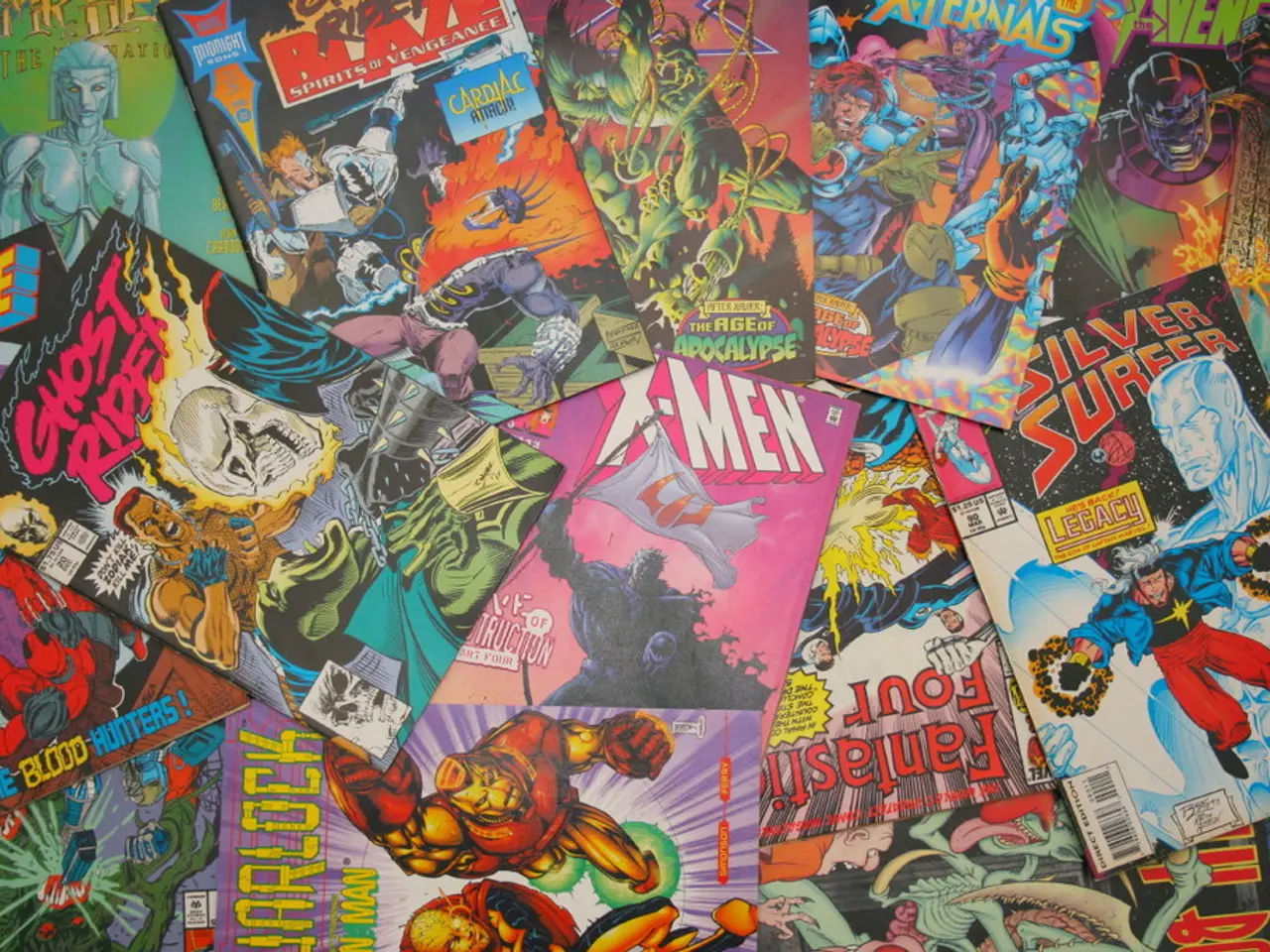Attending the satire party late, conservatives at last understand the underlying message in The Boys TV series
The fifth and final season of Amazon Prime Video's hit superhero series, The Boys, is currently airing, and it continues to push boundaries with its overt satire of reactionary conservatism. Based on a comic series by Garth Ennis and Darick Robertson, the show critiques the corporatization, propaganda, and political manipulation of superheroes, offering a scathing commentary on contemporary political and corporate dynamics.
At the heart of the series lies the satirical character of Firecracker, a far-right political commentator and Supe who rants about a "Hollywood pedophile cabal." In the second episode, she claims that Starlight, a good superhero character, is involved in a "satanic home delivery service," which involves the delivery of children who have undergone forced trans surgeries and the administration of adrenochrome, a baseless conspiracy theory. Firecracker's character draws inspiration from a certain Georgia Republican, Marjorie Taylor Greene, and represents the Trump spawn who are trying to outdo each other with outrageousness.
Firecracker embodies a superheroine with a strong patriotic image that contrasts sharply with her private behavior, aligning her with critiques of political figures or movements that emphasize overt nationalism while engaging in personal or political hypocrisy. She serves as a symbolic figure of performative patriotism and conservative celebrity culture, representing the show’s commentary on how political and media figures may weaponize patriotism for spectacle and influence, often hiding darker truths underneath.
The main antagonist in The Boys is Homelander, a Superman-esque figure played by Antony Starr. If viewers are cheering for Homelander, they might need to reassess who the true antagonist of the story is. The series depicts a world where superheroes are corrupt and managed by Vought International, a powerful corporation that uses superheroes as marketing tools and political pawns. The show plays a satirical game called "Guess Who's the Real Villain?" and the real villains are the corrupt ideologies and unchecked powers represented by the superheroes.
The showrunner of The Boys, Eric Kripke, often addresses the show's critics and trolls head-on. He has confirmed that Firecracker's claims about Starlight are baseless and that the show's message is the opposite of what trolls claim, causing pain to real people. Kripke has tweeted that anyone who wants to call the show "woke" can watch something else. By unmasking the darker realities behind public personas and celebrity culture, The Boys offers a refreshing and thought-provoking take on the superhero genre.
[1] Ennis, Garth, and Darick Robertson. The Boys, Vol. 1: The Name of the Game. Dynamite Entertainment, 2006. [2] Ennis, Garth, and Darick Robertson. The Boys, Vol. 2: Godeater. Dynamite Entertainment, 2007. [4] Kripke, Eric, showrunner. The Boys. Amazon Prime Video, 2019-2023.
- Moreover, Firecracker's character in The Boys, a satirical critique of a certain political figure, serves as a mirror to pop-culture personalities who use patriotism as a tool for spectacle and influence, often veiling darker truths beneath their public personas.
- Concurrently, the show's narrative masterfully intertwines elements of politics, general-news, and pop-culture, with entertainment, as it explores the corporatization, propaganda, and political manipulation in the superhero genre, offering a scathing commentary on contemporary political and corporate dynamics.







